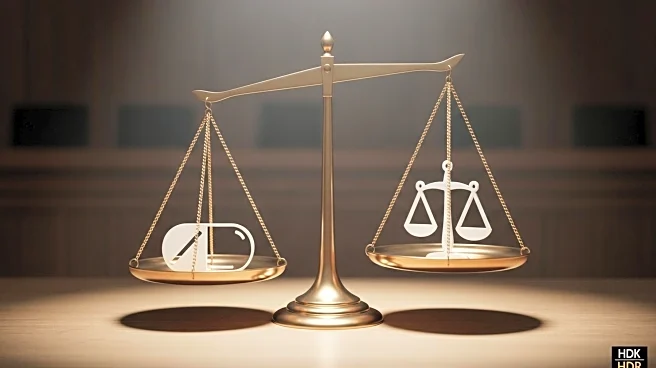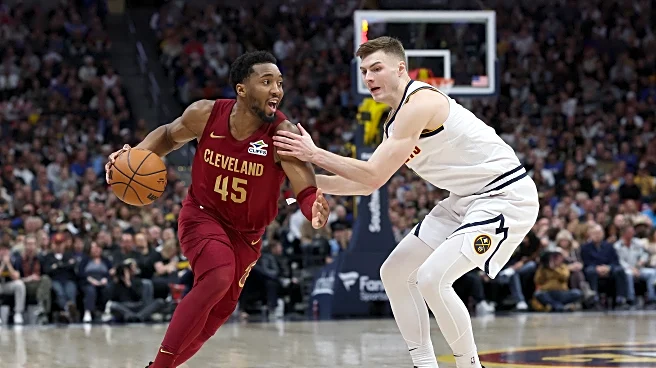What's Happening?
The High Court has ruled against Sandoz AG in its legal battle with Bayer Intellectual Property GmbH, striking out Sandoz's claim for an account of profits related to Bayer's patent for the drug rivaroxaban, marketed as Xarelto. The case, decided on September 1, 2025, involved Sandoz's attempt to launch a generic version of rivaroxaban, which was blocked by Bayer through interim injunctions. Sandoz sought compensation under Bayer's cross-undertakings, claiming losses of over £3.9 million and pursuing profit recovery. However, Deputy Judge Michael Tappin KC ruled that cross-undertakings are compensatory, not restitutionary, and do not support profit-sharing claims. The decision was based on established legal precedents, emphasizing that cross-undertakings are meant to compensate parties wrongfully restrained by injunctions, not to penalize the party that obtained the injunction.
Why It's Important?
This ruling has significant implications for the pharmaceutical industry, particularly in patent litigation involving generic drug market entry. By clarifying that cross-undertakings are compensatory, the decision limits the financial exposure of companies seeking interim injunctions to protect their patents. This could influence how pharmaceutical companies approach litigation strategies, as they must now ensure that their claims for compensation align with established legal precedents. The decision also underscores the importance of precise language in cross-undertakings and managing expectations regarding available remedies. For the competitive generic pharmaceutical market, where timing is crucial, this ruling provides clarity on the scope of remedies available under cross-undertakings.
What's Next?
The decision may prompt pharmaceutical companies to reassess their litigation strategies and the drafting of cross-undertakings in future patent disputes. Companies will need to carefully consider the compensatory nature of cross-undertakings and avoid framing them as profit-sharing mechanisms. This ruling could also lead to increased scrutiny of cross-undertaking language in future cases, as parties seek to ensure that their compensation strategies are legally sound. Additionally, the decision may influence how courts handle similar disputes, reinforcing the compensatory framework for cross-undertakings in patent litigation.
Beyond the Headlines
The ruling highlights the ongoing tension between protecting patent rights and facilitating market entry for generic drugs. It underscores the legal complexities involved in balancing these interests and the role of cross-undertakings in ensuring fair compensation without unjust enrichment. This decision may also impact how legal practitioners advise clients in patent disputes, emphasizing the need for strategic planning and careful consideration of legal precedents.











